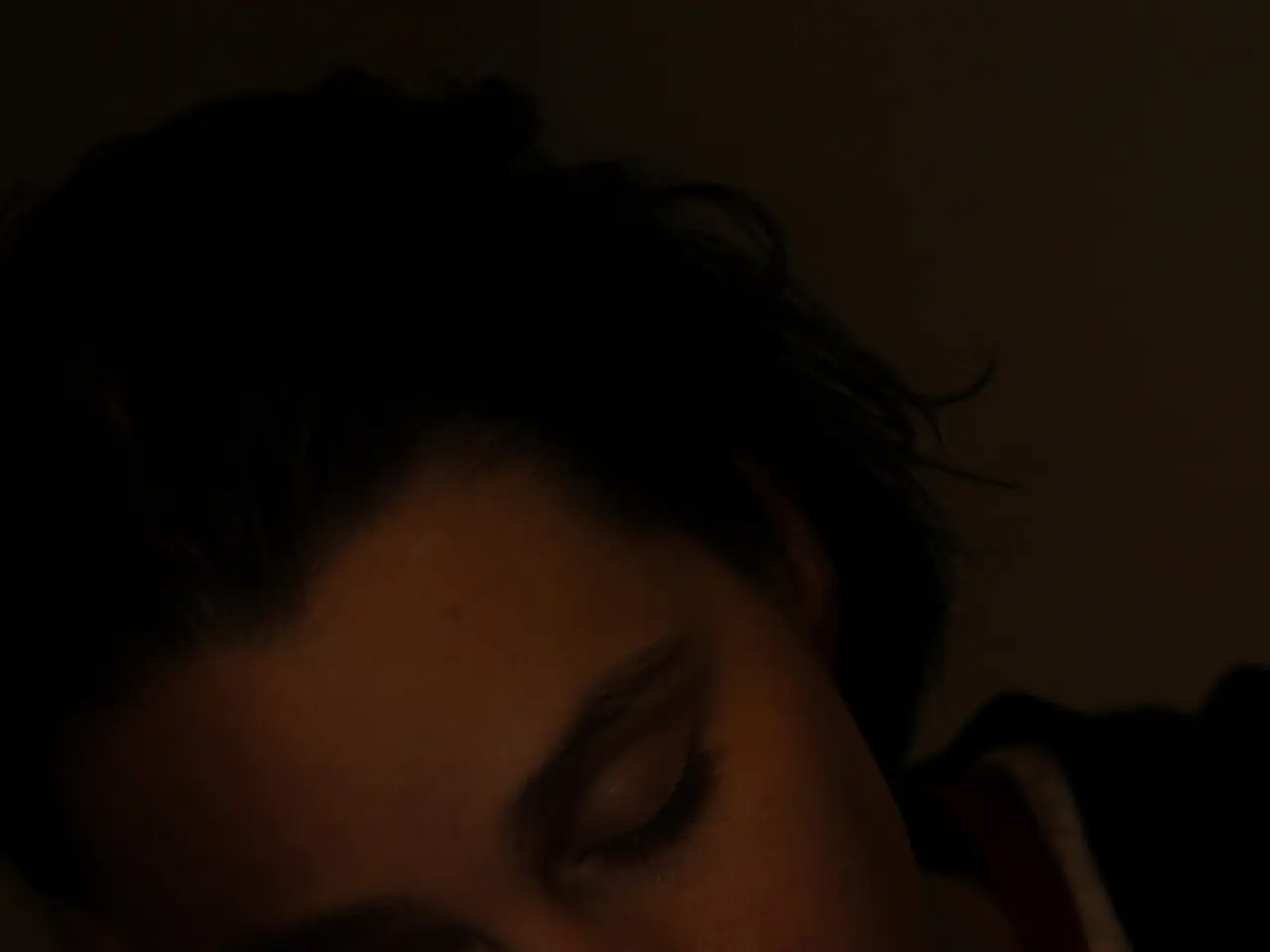Exploring the Connection Between Bipolar Disorder, Sleep Disruption, and Sleep Paralysis
In the intricate world of sleep and mental health, three conditions – bipolar disorder, insomnia, and sleep paralysis – share a complex relationship. This connection primarily revolves around their impact on sleep regulation and mental health, with stress and circadian rhythm disruptions playing a central role.
Bipolar Disorder and Sleep Disturbances ----------------------------------------
Bipolar disorder is often associated with sleep problems such as insomnia (difficulty falling or staying asleep) and hypersomnia (excessive sleepiness). These sleep disruptions can worsen the mood symptoms of bipolar disorder and sometimes trigger manic or depressive episodes. Sleep deprivation in bipolar patients can lower the threshold for manic episodes, making sleep management critical.
Insomnia and Bipolar Disorder -----------------------------
Insomnia is common in bipolar disorder and can exacerbate symptoms such as mood instability, concentration difficulties, and anxiety. Nearly 30% of bipolar patients report hypersomnia as well, showing altered sleep patterns are prevalent in this population.
Sleep Paralysis and Bipolar Disorder ------------------------------------
Sleep paralysis – a temporary inability to move or speak while falling asleep or waking up – is linked to sleep fragmentation and stress. Bipolar disorder and related stress or anxiety disorders increase the risk of experiencing sleep paralysis. It occurs due to a "wake-sleep glitch" and can be triggered or worsened by sleep deprivation, irregular sleep schedules, and mental health conditions including bipolar disorder.
### How these conditions interact
Disrupted sleep from insomnia or parasomnias (which include sleep paralysis) can worsen bipolar disorder symptoms due to poor brain restoration and mood regulation. Stress and irregular circadian rhythms, common in bipolar disorder, increase susceptibility to insomnia and sleep paralysis. Sleep disorders can contribute to the onset or severity of mental health disorders, creating a cyclical risk.
Effective Management --------------------
Managing these conditions effectively requires a combination of consistent sleep routines, stress reduction techniques, targeted therapies, and appropriate medical treatment to stabilize mood and improve sleep quality.
1. **Consistent, good sleep hygiene**: Maintain a regular sleep schedule with 7–9 hours of restful sleep. Create a calming bedtime routine and sleep environment. Avoid sleep restriction and ensure adequate sleep to prevent triggering manic episodes.
2. **Stress management**: Employ mindfulness, relaxation techniques, and cognitive behavioral therapy (CBT), especially CBT for insomnia (CBT-I), to reduce stress and improve sleep quality.
3. **Medical and therapeutic interventions**: For bipolar disorder, mood stabilizers and medications that support stable sleep patterns may be prescribed. In severe cases of sleep paralysis, medication that boosts brain serotonin can help restore deep sleep phases. Treat any coexisting sleep disorders like sleep apnea if present.
4. **Monitoring and early intervention**: Regular monitoring of sleep patterns and mood can help detect early signs of destabilization. Addressing sleep disturbances promptly can prevent worsening psychiatric symptoms.
In summary, bipolar disorder, insomnia, and sleep paralysis are interconnected through disruptions in sleep and circadian rhythms, with stress as a common exacerbating factor. Managing these conditions effectively requires a combination of consistent sleep routines, stress reduction techniques, targeted therapies, and appropriate medical treatment to stabilize mood and improve sleep quality.
- The sleep disturbances in individuals with bipolar disorder, such as insomnia and hypersomnia, can worsen their mental health symptoms and even trigger manic or depressive episodes.
- Insomnia, common in bipolar disorder, can exacerbate symptoms such as mood instability, concentration difficulties, and anxiety in patients.
- Sleep paralysis, which can be experienced by individuals with bipolar disorder, is often linked to sleep fragmentation and stress, making it more prevalent in this population.
- Sleep deprivation in bipolar patients can lower the threshold for manic episodes, highlighting the importance of managing sleep for individuals with bipolar disorder.
- Effective management of these conditions involves maintaining good sleep hygiene, stress management practices, targeted therapies, and appropriate medical treatment to stabilize mood and improve sleep quality.
- In the field of health-and-wellness and mental health, sleep paralysis, insomnia, and bipolar disorder demonstrate a complex relationship that primarily revolves around their impact on sleep regulation and mental health.








